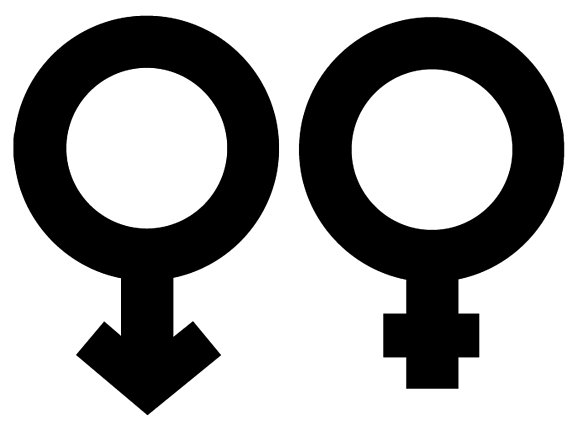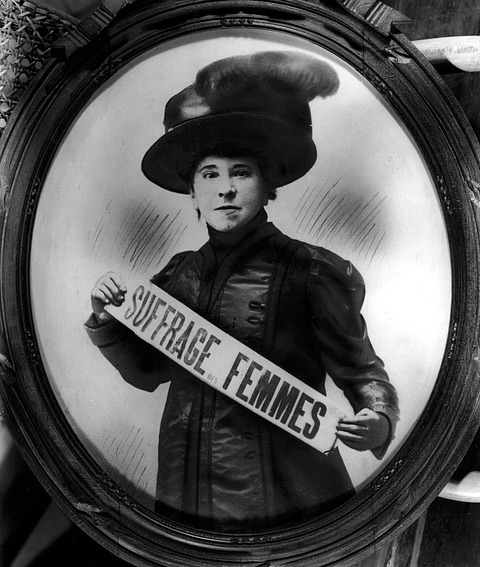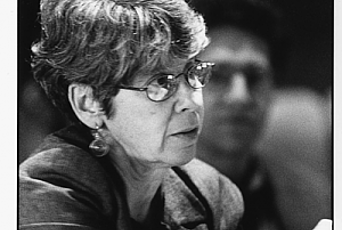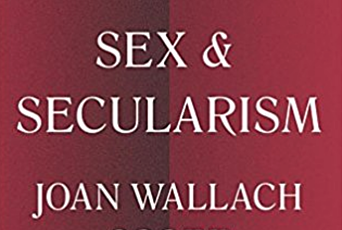The Persistence of Gender Inequality

This article is a slightly edited excerpt of the lecture given on the occasion of the awarding of the Edgar di Picciotto International Prize of the Graduate Institute of Geneva to Joan Wallach Scott, Professor Emerita in the School of Social Science, on September 25, 2018. The honor recognizes internationally renowned academic leaders whose research has improved our understanding of global challenges and influenced the decisions of policy makers. She is the first woman to receive the prize whose previous winners are Amartya Sen, Saul Friedländer, and Paul Krugman. The full video of her lecture, “Gender Equality: Why Is It so Difficult to Achieve?” may be viewed here. Scott joined the Institute Faculty in 1985, and has challenged the foundations of conventional historical practice, including the nature of historical evidence and historical experience and the role of narrative in the writing of history, from gender and questions of difference to underlying ideological systems. Her most recent book is Sex and Secularism (Princeton University Press, 2017).
The question I pose in this talk is why—despite decades (indeed centuries)—of social protest, policy initiatives, educational reform, nongovernmental organization activity, national and international legislation—gender inequality persists. The most dramatic and disturbing examples of this persistence have come with the revelations of the #MeToo movement which, at its best, has unveiled the use of sex as a tool of power (in the workplace, the academy, sports, the arts ... ). Lest we be tempted to attribute this behavior to a few individual bad actors, there are also statistics to document a culture of male entitlement: wage gaps, vast discrepancies in political representation, high rates of domestic violence, glass-ceilings at the topmost levels of corporate leadership, a growing number of attacks by organized religious and political groups on women's reproductive rights and even on academic gender studies programs. Writing in the New York Times a few months ago, the U.S. feminist Vivian Gornick expressed her despair at the lack of progress: "As the decades wore on, I began to feel on my skin the shock of realizing how slowly—how grudgingly!—American culture had actually moved, over these past hundred years, to include us in the much-vaunted devotion to egalitarianism." It is not only American culture, of course, the evidence comes from all over the world: the project of gender equality remains unrealized despite concerted efforts to achieve it. Modernity, secularism, democracy—these have not ushered in the reign of equality they promised, at least not when it comes to gender (or, for that matter, class or race).1 Why?
Some of the reasons usually offered to explain the persistence of gender inequality include large abstractions: patriarchy, capitalism, male self-interest, misogyny, religion. These are, of course, useful categories to work with, but none of them can account for how deep-rooted these inequalities are in our psyches, our cultures, and our politics. My alternative explanation, based on psychoanalytic and political theory, has to do with the ways in which gender and politics are interdependent: a naturalized belief in the necessary and immutable difference of the sexes provides legitimation for the organization of other social and political inequalities; in turn the legitimation invoked by politics, establishes the immutability of biology. Whether taken as God's word or Nature's mandate, gender—the historically and culturally variable attempt to insist on the duality of sex difference—becomes the basis for imagining social, political, and economic orders. In this representation of things, to question the asymmetry of the sexes as a biological fact is to threaten an entire political order.
Before I explain what I mean by the interdependence of gender and politics, I want to define "politics" and "gender." Politics is easier. It refers to relations of power, especially as they are embodied in law and the organization of the nation-state. In democracies, this has to do with the question of representation: who is represented and how, as well as who gets to be a representative.
To question the asymmetry of the sexes as a biological fact is to threaten an entire political order.
Defining gender, in contrast, is not an easy task since its meaning has been difficult to pin down. The authors of the third edition of the American Heritage Dictionary (1992) gave up trying, pointing out that the distinction between sex and gender might be "useful in principle, but is ... by no means widely observed, and considerable variation in usage occurs at all levels."
Gender was the term taken up by second-wave feminists who wanted to insist that biology ought not to determine the roles attributed to women and men. If sexed bodies were about nature, gender was about culture, about the ways different cultures attributed meaning to those sexed bodies. It followed from this that biology ought to be irrelevant in the allocation of resources, in access to education and jobs, and to political representation. Some of us went further, insisting that the biological difference of sex had no inherent meaning apart from its representation as (or by) gender. As Judith Butler put it in her now classic Gender Trouble, "If the immutable character of sex is contested, perhaps this construct called 'sex' is as culturally constructed as gender; indeed, perhaps it was always already gender, with the consequence that the distinction between sex and gender turns out to be no distinction at all." The psychoanalyst Jean Laplanche made an even stronger argument: it is gender, he says—the attribution of the primary male/female distinction by adults to a child's genital organization—that establishes the social and psychic meaning of those body parts. Laplanche refers to an "illusory" or phantasmatic anatomy by which he means not that anatomy doesn't exist, but that—as Jacqueline Rose explains it—sexual difference is "figured" only as anatomical difference. Visible anatomical difference, she writes, "becomes the sole representative of what that difference is allowed to be. It thus covers over the complexity of the child's early sexual life with a crude opposition in which that very complexity is refused or repressed." Put in other terms, we might say that biology obscures the workings of gender as the true source of the meanings of the difference of sex.
For me, as a historian, this means asking of any society or culture how the difference of sex is being defined and regulated, as well as what ends it is seeking to secure. Gender is a question, not a given, in the research I do.
This is not the case for many political activists and commentators, who tend to take the fixity of biology for granted. The reference by journalists to a "gender gap" is an example—it connotes nothing more than differences in the behavior or treatment of women and men. And the fixed biological meanings of "woman" and "man" are presumed even when exposing inequality is the goal. In many of these reports, the focus is on local "cultures" of inequality, when those are actually the effects of large-scale economic and geopolitical processes that take sex difference as fixed, and so reproduce the discrimination the reformers seek to end. But without changes in the structures that underlie poverty and inequality—by using impoverished women in the global South as a source of cheap labor, by causing large flows of international migration and massive transfers of population and wealth—it is difficult to imagine how what these international organizations refer to as "women's empowerment" can be achieved. Lack of critical attention to these large structural issues, which are based on (and so reproduce) the implicit notion that the difference of sex is a fact of nature, is one of the reasons inequality persists.
What these commentators sometimes ignore is that "gender" necessarily implies a critique of the certainty of biology, and so suggests intolerable instability to the forces of order. That is why, in the backlash apparent in many countries today, they have launched a sustained attack on the so-called "theory of gender," likening it to a communist conspiracy to topple the world order. At the United Nations Conference in Beijing in 1995, the Catholic delegates fixated on the idea that "gender" opened the door to homosexuality. Peru's spokesman insisted that "sexual rights refer solely to heterosexual relationships." And the Vatican insisted that if the term had to be used at all, the meaning of gender must be "grounded in biological sexual identity, male or female."2 During the discussions of the drafting of the Rome Statute which created the International Criminal Court (ICC) in 1998, "gender" was singled out for special consideration, while terms like "political," "racial," "national," "ethnic," "cultural," "religious," "wealth," "birth," and "age," were taken to be self-evident and in need of no clarification.3 Long negotiations were required to find exactly the right wording—a wording whose awkwardness reflects the controversies the words were crafted to resolve. Article 7(3) of the Rome Statute defines gender this way:
For the purposes of this Statute, it is understood that the term "gender" refers to the two sexes, male and female, within the context of society. The term "gender" does not indicate any meaning different from the above.4
The phrase "two sexes" was a concession to the Right; "within the context of society" was meant to mollify social constructionists. The final sentence seems to me to convey deep anxiety about the uncontainable nature of gender. Gender could mean much more than "two sexes, male and female"; its exact referent had therefore to be repeatedly specified and that might not be enough. Even if the referents were restricted to anatomical men and women, the idea that they are defined "within the context of society" calls into question any self-evident biological claim.5
This example of the tortured attempt to contain the possibilities of "gender" leads to my argument that the interdependence of gender and politics is an explanation for the persistence of inequality based on sex. The stakes are clearly very high for maintaining a biologically based definition of the difference of sex—more so these days, it seems, than in decades past. This is because the very legitimacy of political systems—at least in modern democracies—has been based on an appeal to the natural and immutable difference of sex. How has this worked?
Lack of critical attention to these large structural issues, which are based on (and so reproduce) the implicit notion that the difference of sex is a fact of nature, is one of the reasons inequality persists.
For an answer, I turn to Freud and to Lacanian readings of Freud, on the one hand, and to the political theorist Claude Lefort, on the other. In both cases, I suggest that the clue is indeterminacy: the indeterminacy—the enigma—of sexual difference, and the indeterminacy—the uncertainty—of the embodiment of authority in democracies. Each uses the other to provide stabilized meaning where none exists: in this way, politics constructs gender, and gender constructs politics.
According to psychoanalysts—the difference of sex is ultimately inexplicable. It is the riddle that defies fixed meaning, the understanding that always seems to escape control, the dilemma that gives rise to myth and fantasy. It is the place where questions about the relationship of mind and body are confounded, where the individual and the social are inseparable. The Slovenian philosopher Alenka Zupančič puts it this way: "... The sexual is not a separate domain of human activity or life, and this is why it can inhabit all the domains of human life."The point is that sex and sexual difference are not simply metaphors for other areas of human activity; they are always already imbricated in those other domains.
Precisely because sexual difference is so central to the representation of social relationships and because it cannot be circumscribed, great effort has been expended to fix its meaning: the body becomes the indisputable determination of the social meanings of masculinity and femininity, and then entire social and cultural edifices are built on the shaky foundations of so-called immutable gender difference.
What makes all of this interesting for historians like myself (and I hope others of you as well) is that stability cannot be secured. The illusory nature of anatomical sex difference—its ultimate undefinability—introduces ambivalence, anxiety, indeterminacy, and instability into these organizing conceptual systems. The social rules that announce and enforce the meanings of the difference between women and men insist that they refer to the timeless truth of anatomical genital differences. But the only truth there is about these differences is that their meanings are ultimately impossible to secure. Anthropologists and historians have shown that the traits and roles attributed to men and women have varied across cultures and time; philosophers have grappled with the ways in which perception informs the lived experience of a material body; psychoanalysts have taught us to be skeptical of the power of normative regulation to contain the unruly operations of the unconscious. Gender, they argue, does not reflect the dictates of bodies. Rather, it attributes to those bodies meanings that are inevitably contested by psychic processes (drives, fantasy, unconscious identification). These result in sexualities that do not conform to normative regulations. Gender, from this perspective, does not base its social roles on the imperatives of physical bodies; rather it is a historically and culturally variable attempt to provide a grid of intelligibility for sex, and—beyond sex—for the intelligibility of systems of political rule.
The emergence of modern democratic nation-states demonstrates starkly the imbrication of gender and politics. The end of absolutism and, with it, the loss of its legitimating religious authority introduced a new uncertainty into political representation. Possession of the phallus, the symbol of the ruler's power, was no longer the prerogative of God's representative on Earth. And, as the reign of kings (and the occasional queen) gave way to representative systems of government (parliaments, constitutional monarchies, republics, democracies), the physical body of the ruler as the incarnation of sovereignty was replaced by a set of disembodied abstractions: state, nation, citizen, representative, individual. The French political theorist Claude Lefort puts it this way: "the locus of power becomes an empty place ... it is such that no individual and no group can be consubstantial with it—and it cannot be represented." The impossibility of representation, he continues, leads to a permanent state of uncertainty: "The important point is that democracy is instituted and sustained by the dissolution of the markers of certainty. It inaugurates a history in which people experience a fundamental indeterminacy as to the basis of power, law and knowledge and as to the relations between self and other at every level of social life...." In the abstract, the impossibility of power's embodied representation is clear. But for those who implemented the system, the question of who was charged with articulating and enforcing the decrees remained.

It is here that Freud's theorizing (in Totem and Taboo especially) helps shed some light on the reasons that men became the embodiments of political authority in democratic polities. It is important to stress here that Freud is offering a theoretical fiction—a myth, if you will. His interpretation is a way of accounting for what he takes to be an evident truth of political psychology. In his mythical account, there was a primal father (a king) whose power lay in his monopoly of all pleasure; lesser men eventually kill (and in Freud's version eat) him in order to gain the access that they have been consistently denied. By devouring the father figure, the men retrospectively become brothers. Freud says that in this way they "accomplished their identification with him, and each of them acquired a portion of his strength." Coming into their own as adults required the sexual initiation that the father had forbidden them: an appropriate woman of their own. The brothers institute a prohibition of incest to ensure that this woman will not be a mother or sister, all of whom had been game for the primal father's seductions. The rule of the sons then replaces the absolutism of the father, some form of fraternity overthrows the reign of the king. In Freud's terms an "ideal father" replaces the primal father, it is he (or they—the sons acting collectively to achieve this ideal) whose actions must protect society from a return of excess.
There were nonetheless continuing rivalries among the brothers and these were managed by assigning to each a smaller, tamer version of what they rebelled against. The laws of marriage, in this vision, ensured that each brother had his own woman and that no brother had more than one. In the realm of the psyche, shared political power depends on the disciplining of sexuality by marriage, the containment of desire within a socially beneficial familial unit. In the political realm, the idea of abstract individualism rests on a presumed sameness (whatever the social differences among men—and not all men, only those, usually white, whose higher rationality defined them as autonomous individuals).
Whose sexuality is at issue in the wake of the parricide? There are two possibilities and they are related. The first, suggested by the work of French psychoanalyst, Jacques Lacan, is that the danger of excess lies with the brothers, who compete among themselves in order that one of them will be able to exercise the slain father's power. Freud noted that the rivalry among the brothers continued after the father's death. "Each of them would have wished, like his father, to have all the women to himself." This fantasy, the notion that his likeness to the father exempts one of the brothers from castration (and so gives him access to all the women)—Lacan calls it the "phallic exception"—is ever-present, expressed not only in adulterous liaisons, but in all manner of political contests in which candidates seek to display the signs of their exceptionalism, and so to demonstrate their unique possession of the phallus, now equated literally and mistakenly with the physical organ. (Here we might think of Silvio Berlusconi and Donald Trump, surrounded by all those glittering women, as striving to reincarnate the deposed father's monopoly of power, making law even as they transgress law; Trump's continued insistence that "his" is bigger than any of his rivals.) The apparent claim to an individual man's uniqueness is actually a collective male fantasy—and therein of course lies the trouble. Since there is no individual body that can act as the concrete referent for power—as the king's did when he was considered the divinely ordained occupant of the throne—the question of how to discern possession is an open and anxious one. The emphasis on reason and (some) men's brains as the sign of this power, I suggest, is a displacement of that anxious question from the pulsating genital regions to the lofty heights of abstraction, reason becomes the distinguishing feature of masculinity. Indeed, masculinity (referring concretely to the sex of the primal father and symbolically to the phallus he wielded) remained the criterion that the band of brothers insisted upon. The French socialist-feminist Jeanne Deroin, who was prevented on the grounds of her sex from running for office during the Revolution of 1848, pointed to the dilemma that men faced as they at once avowed and denied their bodies as justification for their exclusive power. Responding to Pierre-Joseph Proudhon's comment that women legislators made as much sense as male wet-nurses, she asked, "and what organs are necessary for becoming a legislator?" Proudhon did not reply.
The other possibility, the one seized on by early political theorists, is that women represent the danger of excess that the brothers now have to guard against. In this scenario, the appetites of the primal father are, in effect, attributed to women's provocation. She is Eve, the seductress, the initiator of the Fall. It is women who threaten to subvert men's rationality, to lure them off course. Rousseau warned in Emile that, unlike men, women could not control their "unlimited desires." It was only the imposition of modesty that prevented "the ruin of both [sexes]," otherwise women's lust would lead mankind to "perish by the means established for preserving it." For Rousseau (and many others) it is not only the channeling by modesty of women's sexuality into restrained displays of affection, but the institutionalization of the separation of spheres—the literal containment of women's unruly desire within the walls of the home as critical to the proper functioning of the state.
The two possibilities are, of course, linked. Lacan points out that, in the realm of the unconscious, women's desire serves to confirm men's possession of the phallus, both personally and politically. Without her, there is no proof of his potency. But the proof must remain indirect, at least at the level of public representation, where men's claim to equality rests on abstraction (on the presumed sameness of the brothers) and all sexuality is located concretely in women's bodies. Women's desire confirms men's possession of the phallus; that so-called private relation of familial sexual intimacy, in turn, establishes men's potency and so their right to political power. From this follows all manner of legislation regulating (and even emancipating) sex, sexuality, marriage, and the like. These are psychic investments in sexual difference, expressed in terms of science and politics, but it is their psychic quality—a quality that exceeds conscious control—that helps account for the persistence of inequality despite our best efforts.
The emergence of modern nations brought with it a new insistence on the immutability of gender roles and the policing of sexual activity to keep them in place. Historians working on Germany, France, England, and the United States have observed the "hardening" of the lines of gender differentiation as an aspect of an overall emphasis on divisions of labor from the eighteenth century on. On the one hand, the natural difference of sex was the referent that provided legitimation for men's political authority: "Is it to men that nature confided domestic cares?" asked a French revolutionary in 1793, when outlawing women's political clubs, "Has she given us breasts to feed our children?" On the other hand, men's political authority was evidence for nature's mandate: those who opposed granting suffrage to women saw it as a denial of the very masculinity that citizenship conferred. So it was that an irate journalist demanded of French suffragist Hubertine Auclert in 1877: "Is it our resignation as men that dame Hubertine asks of us? Let her say it frankly."
The difference of sex, in other words, was the key to the seeming resolution of the impossibility of the representation of political power that Lefort theorizes; without it, the illusion of certainty cannot be sustained. But it is not a definitive resolution since there is no stable meaning for the difference of sex—hence the repeated expressions of anxiety about whether the extension to women of education and various civil rights (divorce, inheritance of property, guardianship of children) would obliterate the lines of sexual difference and make women and men "the same." This confusion of the sexes, according to one American medical commentator, posed to the nation the terrifying danger of "moral anarchy." In the wake of World War I, historian Mary Louise Roberts writes, "the blurring of the boundary between 'male' and 'female'—a civilization without sexes—served as a primary referent for the ruin of civilization itself."
We can hear that anguished prophecy of the end of times echoing to our own day from opponents of feminist and queer theories, who argue that historicizing established norms about women and men is an assault against the very foundations of civilized life. To take only two examples: during those debates I cited earlier that led to the creation of the International Criminal Court, one commentator noted that if the word gender were allowed to refer to anything beyond biologically defined male and female, the Court would be in the position of "drastically restructuring societies throughout the world." This same concern about the radical potential of gender to challenge the established meanings of sex difference was expressed by the opponents of a French curriculum that aimed at gender equity in 2011 and of France's law on gay marriage in 2013. The "theory of gender," they argued, "by denying sexual difference, [would] overturn the organization of our society and call into question its very foundations."
The emergence of modern nations brought with it a new insistence on the immutability of gender roles and the policing of sexual activity to keep them in place.
The "theory of gender" does not deny sexual difference, but it does historicize it. It says that gender consists of historically specific articulations defining male and female that aim to settle the indeterminacy associated with sexual difference by directing fantasy to secure the stability of some political or social end. Challenges to these articulations elicit not only adamant insistence about their immutability, but an intensification of the policing of regulatory norms. There are many examples to offer—I've already referred to the ways in which Berlusconi and Trump present themselves as primal fathers, offering to fix everything that is wrong in their nations simply by the exercise of their inordinate powers. If we defer to them (as wives to husbands, children to fathers), they promise to provide all the security we need in return. It is not the analogy to asymmetrical family relations that demonstrates my point in these cases, it is the bold assertion of exceptional masculinity as the cure for economic distress, social division, and the threat of terrorism that illustrates the mutually constitutive relationship of gender and politics. It is precisely at moments of great political instability that invocations of gender (not always the same ones, not always in the same way) appeal to deep psychic investments and, in that way, seek to stabilize the political system. (In Poland, Brazil, Italy, the U.S., and Hungary, authoritarian rulers have targeted women's rights as part of their campaigns. In Hungary, Victor Orban is proposing to ban the teaching of gender studies in universities and any mention of the word gender; in Bulgaria, a UNESCO approved gender equity curriculum has just been banned by the Bulgarian academy of sciences and the ministry of education.)6
The importance of the difference of sex as a ground for politics is one of the legacies of modernity and for that reason it has been hard to change. It is embedded in our psyches as well as in our understanding of politics. The appeal to a natural difference of sex has been one of the legitimating claims of those wielding political power, and the attribution of gender to nature has served to lend an air of stability to inherently unstable political systems. Where does that leave those of us intent on achieving gender equality across our societies? With an insight about the operations of gender ideology that is not a plan of action, but perhaps a guide to formulating more complex strategies in specific situations. We need to figure out how to address the instabilities inherent in the categories of both politics and the difference of sex. These are instabilities, uncertainties, and anxieties that are at once psychic and political. They not only demand resolution but—because resolution is ultimately impossible—they may allow us to identify possibilities and openings for change.


